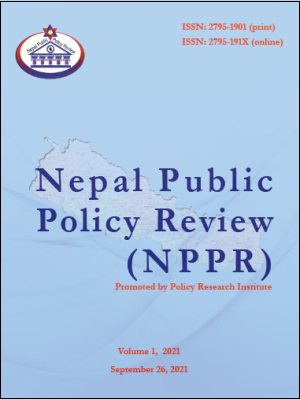Household transitions to clean energy from traditional biomass in Nepal: Challenges and opportunities
Keywords:
clean energy transitions, traditional biomass, electricity, households, NepalAbstract
In recent years, the Nepal government has recognized and prioritized several clean energy initiatives in its national plans and policies. Despite this, more than two-thirds of households still rely on traditional biomass, as their primary source of energy, for cooking and heating, making the household fuelwood consumption per person in Nepal among the highest in the world. However, why households’ transitions to clean energy for cooking is slow has been poorly understood. Using energy-specific information from the World Bank’s Multi-Tier Framework (MTF) survey and the Nepal government’s Multiple Indicator Cluster Survey (MICS), the cooking and heating energy consumption situation of households across the provinces by rural and urban areas is analyzed briefly. Also, a simple levelized cost of cooking is estimated using different fuel-technology combinations. The main findings of this paper are: limited availability, unreliable supply and high costs are hindering households’ transitions to clean energy from traditional biomass; the combination of fuelwood, liquified petroleum gas and other clean energy sources (multiple fuel stacking) are common within the same household; and, the use of biogas, and to some extent, solar power, for cooking is limited to scale and geographical location. It is expected that electricity will be the most economic and common primary clean cooking energy option for households in the future provided that the government has the policy to address the reliability concerns of electricity and that it is affordable for low-income households.
Downloads
Downloads
Published
How to Cite
Issue
Section
License
Copyright (c) 2021 Sunil Malla

This work is licensed under a Creative Commons Attribution-NonCommercial 4.0 International License.




